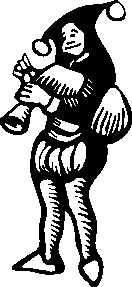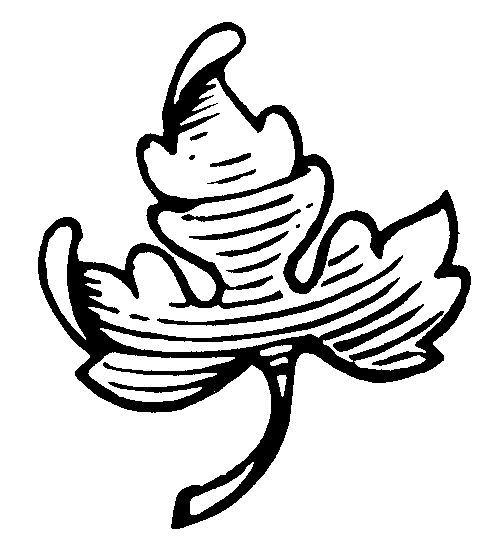 Researching a Character
Researching a Character
 Researching a Character
Researching a CharacterCharacter building is the overall process of figuring out who your character is and what she does. This process includes finding the character's motivation, choosing characteristics such as dialect and movement style and inventing "bits" for the character to do in the streets. There are a number of books on the subject, but my favorite is Gary Izzo's The Art of Play.
Character research, on the other hand, is all about digging into your resourses, historical, literary, and otherwise, and looking for information you can use to make your character more specific and therefore more interesting. Obviously, this information feeds into the character building process, so you might think of research as a part of character building. It is by no means the only part (I've seen players who knew absolutely everything about the person they were playing, and yet gave performances that were absolutely flat) but it is an important part, as we shall see.
It is research that allows you to make this kind of very specific choice, by providing a set of historical facts that you can use as a springboard for your creativity. This is especially important if you are playing an historical character, but even fictional characters can benefit. For example, if you are playing the village barber, it is useful to know that barbers in the Period also pulled teeth and performed other surgeries.
Why Do Research
For most of us, the word "research" brings up awful memories of our high-school English classes: the tedious precision of bibliography entries, teachers droning on about paragraph structure, and endless piles of note cards. So our first reaction to being told to research a character is to ask "Why?" After all, if we are going to go through the agony of research, there had better be a good reason for it! Now, as it turns out, the kind of research that we do for theater is a lot less painful than strict academic work, but still, some justification is in order.
Specificity
When I was in college, my directing professor used to say that "generality is the enemy of all art." As actors, the more specific our choices are, the more clearly we can play them. For example, rather than being a generic character type, such as Guard #3, it is far more interesting to present Sir Michael Wyatt, cousin to the infamous Sir Thomas Wyatt, determined to redeem the family honor through faithful service to the Queen.
Audience Education
I recently added to my video library a copy of the director's cut of "Tombstone." In one of the behind-the-scenes featurettes, there is an interview with Sam Elliott, one of the actors in the film. The insight from this interview that sticks in my mind is that "if you do things right for the people who know, the people who don't will get so much more out of it." This is not to say that everything we do must be one-hundred-percent historically accurate. In fact, there are a lot of things about which we really don't want to be accurate, like sanitation, for example. Neither do I mean that we should sacrifice entertainment for the sake of accuracy. However, we have a unique opportunity to educate our audience even while we entertain them, and it is possible, with a little research, to do both.
Self-Defense
Although fictional characters will occasionally encounter this situation, this is mostly for those who play historical characters. Inevitably there will be some patron who knows a lot about the person you are portraying, especially for the more famous figures, such as Shakespeare or Queen Elizabeth. Some of these folks will approach you, looking either for mistakes or for more information. The more you know, the easier it is to deal with such patrons in a way that not only satisfies them, but is entertaining to everyone else as well.
Inspiration
Finally, the best reason for doing research is that it can give you ideas for things to do. Find out how people of your character's class and occupation lived, what activities they engaged in. Then come up with ways of making interactive bits out of those activities. You will be amazed at how far this technique will take you. Entire shows can be (and have been) written based simply on Sixteenth-century everyday life.
Back to the Top.
How to Do Research
All right, now that we know why we do research, let's get down to the nitty-gritty (a Period expression, by-the-way), and figure out how to do research. Let me begin by admitting that I am no world-class research master. What follows is a description of the methods that I use and have used in the past. If you have favorite tips and tricks that you want to share, please let me know.
Having said that, it is certainly a good idea to keep track of what resources you have used. Not only will this help you double-check your facts, but it will also save you an enormous amount of time if you later decide to go back and do additional research. I do much of my research on-line, and my trick is to create a special folder in my Favorites for all of the links I find on that topic. I sometimes end up with links to the same document in several folders, but so what? It's not as though memory space is hard to get!
As for notes, I've always found that I remember things better if I write them down. There is something about the process of passing information from my brain through my hand and onto the paper that helps seat that information more firmly in my memory. There are almost limitless variations in style and format for notes, from stream-of-consciousness to note-cards. Use whatever style you are comfortable with, as much or as little as you feel you need. I do most of my note-taking on yellow legal pads, for example. If you are just getting started, I suggest trying a bunch of things, to figure out which works best for you.
For your convenience, I've included a printable research form. To make sure it prints properly, please make sure to set your browser text size to "medium" or smaller. You will need Adobe Acrobat to view the file. You can download Acrobat here.
The Costumer's Manifesto - Research Heresy - How to become an "instant expert" on just about anything. This is my favorite article on the subject of traditional research.
My other suggestion for research suitable for theater (although certainly not for academic work) is to read good historical novels. Not only can these give you a strong sense of the flavor of the Period, and make you see the people you are researching in a different light, but they are a lot of fun to read!
In addition to this site (particularly the History Section), you might do well to do some further on-line research that is specific to your character. The bad news: if the amount of information available in the library is overwhelming, what's available on-line is absolutely staggering! The good news: there is help available if you know where to look.
The simplest internet research technique is the Google Search. I would suggest starting with a fairly broad search term (like "Elizabethan England"), then using the "Search within results" link at the bottom of the page to progressively narrow your results.
Alas, not even Google (which is generally acknowledged to be the best search engine out there) covers everything. In fact, there are vast portions of the internet that are not covered by any of the major search engines. The information hidden out there can be found, however, if you know where (and how) to look. The following links will help you hone your search skills and give you ways to search these more obscure corners of cyberspace:
Back to the Top.
If you get frustrated...
...it might help you to know that it does get easier as you go along. The more you know, the more quickly you can think of things to look for and what search terms to use. Librarians are a good source for search terms too. Never be afraid to use every resource available to you, including other people. Just about every Faire or Festival cast has one or more history buffs, and you will quickly figure out who they are, since we tend to be an outspoken lot. Some of us can be a little intimidating (goes with being outspoken, I guess), but most of us love to ramble on about history, and will do so at great length, if you give us the opportunity. Most importantly, remember to have fun with whatever you are working on, no matter how you choose to go about it. After all, that's why we do this, isn't it?







